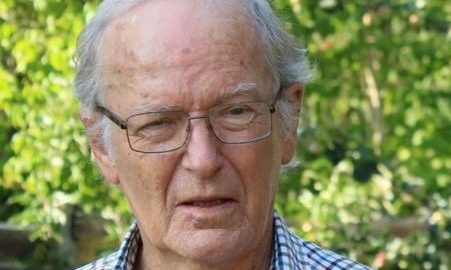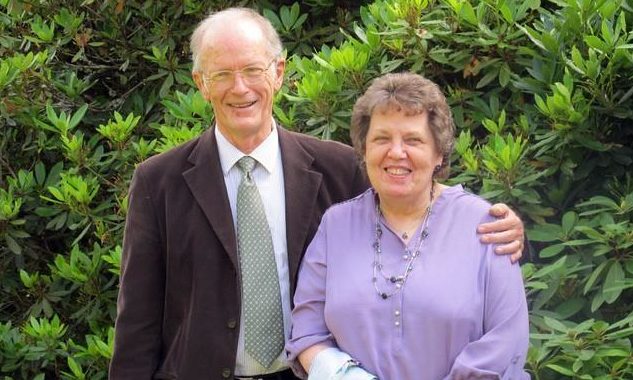Aberdeen botany lecturer Dr Arthur Berg, who led resistance to university cuts in the 1980s, has died aged 84.
He served as secretary and president of the Aberdeen branch of the Association of University Teachers and fought to protect members and the institution from the cuts being proposed by Margaret Thatcher’s government.
Dr Berg’s wife, Nancy, said his determination to thwart Thatcherite cuts was one of his crowning achievements during a career at Aberdeen University that lasted from 1972 until 1997.
He had stood firm as the AUT leader during the bleak times of the 1980s when Mrs Thatcher seemed determined to strip down the universities.”
Arrival in Aberdeen
An American citizen, the Aberdeen Dr Berg first encountered in 1971 was radically different to the city it is today.
Britain was in the grip of a transport strike when he was trying to travel for an interview at the university.
He managed to travel north from Manchester on a chilly mail train in November 1971 and was successful at his interview.
Arthur Richard Berg was born in Kansas in February 1937, where his father was a Methodist minister.
At the age of nine, his family moved to West Texas, to the small town of New Deal, where he grew up and lived until his family moved into the town of Lubbock, Texas.
In his earliest years, he attended a two-room school, and said he profited from hearing the lessons for the older children.
Marching band
At New Deal High School, he played the tuba in the marching band and played American football in his senior year before spending several years in the US Marine Corps Reserve.
Arthur then attended Texas Technical College, which was designed primarily for agriculture, before studying agronomy at the University of California at Los Angeles (UCLA).
There he met his future wife, Nancy Johnston, and married her there. Arthur studied for his PhD in botany at University of California, Davis (UCD) under Dr Elizabeth Cutter, originally of University of Manchester.
Fire studies
He then took up employment with the United States Department of Agriculture’s fire laboratory, which studied the fire problem in California in liaison with a third University of California, Riverside, (UCR) in southern California.
Mrs Berg said: “After six years, fate intervened, and rescued him from the civil service life of the fire laboratory.
“He was asked by Dr Cutter, by then back in Manchester, if he had any students interested in a post in Aberdeen, to which he replied that he did not, but that he was interested.”
Employed by university
After his adventurous trip to Aberdeen, Dr Berg was taken on by the late Professor Paul E. Weatherly, who was assisted by Dr Frank Cusick.
From 1972 until 1994, he lectured at the botany department of Aberdeen University, but then was immediately rehired upon retirement.
Dr Berg worked three more years at the university, and was finally retired in 1997. He then taught on in the access programme for students without the usual entry requirements wishing to join the university. Dr Berg did not stop teaching until his mid-70s.
“He loved one-to-one teaching in the lab. He spent countless hours teaching students the techniques of analysing samples of material for the betterment of crops and for learning basic anatomy and morphology,” said Mrs Berg.
“He was interested in all forms of microscopy. He taught botany at all levels. Latterly, he was asked to teach a course in algology, whereupon he took his students into all manner of murky seaside pools.”
In retirement, Dr and Mrs Berg successfully campaigned for a small park at Friarsfield, Cults, near their home, to be rejuvenated.
“In the process, he made many friends in the community and turned most of them into botanists,” said Mrs Berg. “He held a few impromptu botany demonstrations during the park workdays and some may have seemed like 55-minute lectures. He loved being a teacher.”
Dr Berg is survived by his wife Nancy, children Susan, Arthur and David, nine grandchildren and a great grandson.
The family’s announcement can be read here.

